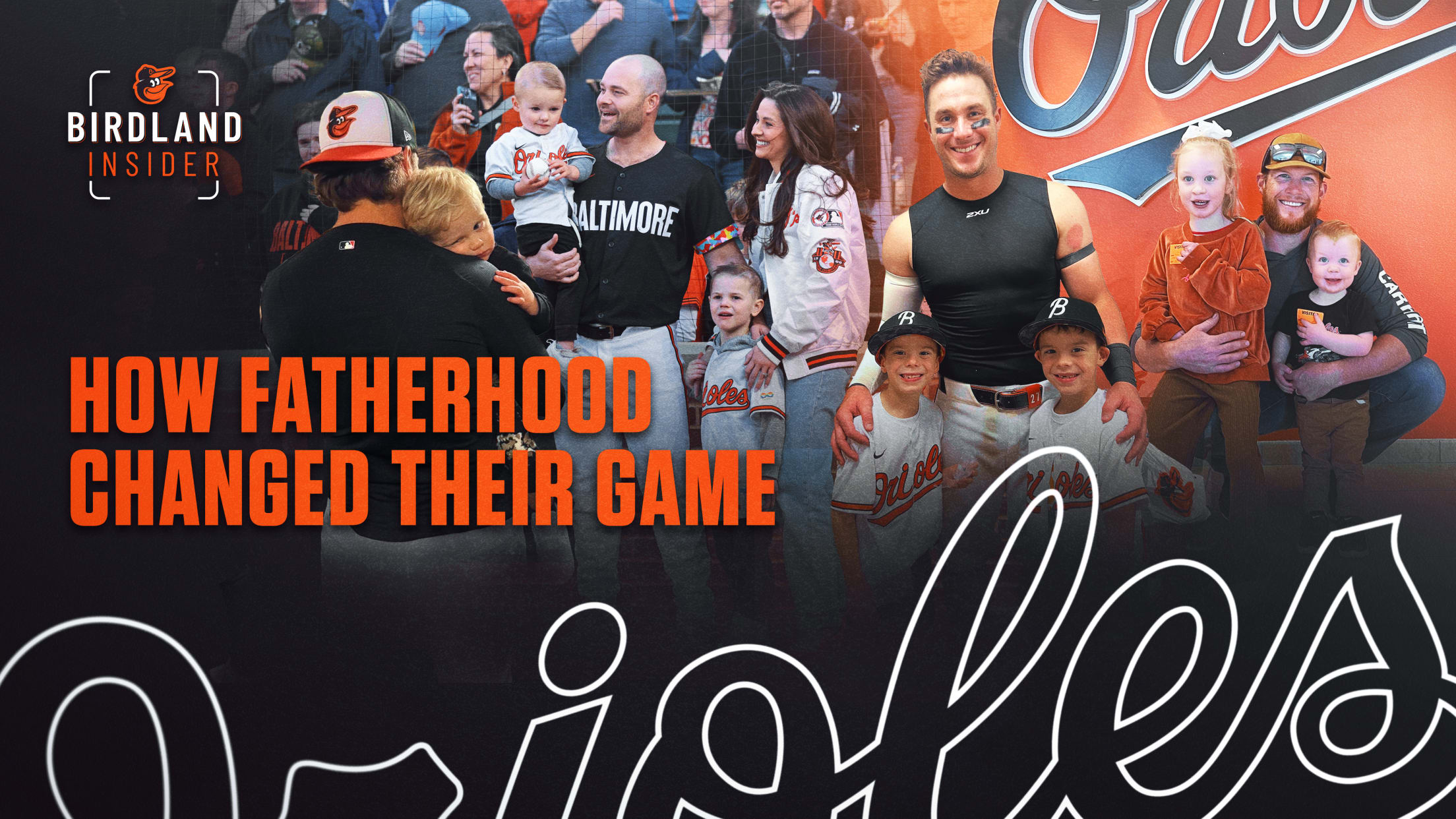
How Fatherhood Changed Their Game
While Baltimore may be known for its young roster, the veterans play an important role in pushing the team to reach new heights. The act of taming a youthful group of teammates takes a unique perspective that few O’s hold, namely the Orioles who have kids of their own. From the outside looking in, some may think these players take on the role of “Dad” both on and off the field, but the dads on the team don’t see it that way; they see themselves as leaders and, more importantly, as friends.
“I definitely feel like the old guy,” said Corbin Burnes, who has a two-year-old son named Carter. “I wouldn’t necessarily say I show fatherly qualities, but definitely some leadership-type stuff. Showing some guys the ways, teaching them about the game a little bit, stuff that I picked up in the past,” he continued. “When you’ve got guys like me, Cole Irvin, McCann, Kimbrel, guys that have been around the game for a while, we get to help teach those guys and lead them in the right direction.”
James McCann, the father of a pair of six-year-old twin boys, Christian and Kane, shared a similar view. “As a veteran, I pull guys aside when I think they need encouragement. I wouldn’t say it’s a parenting type of thing. It’s more of a friendship thing, like, ‘I’ve been there, I know what you’re going through.’ For me, I think your parents are always kind of above you. With guys in the clubhouse, we’re on the same level. We’re going through the same things and pulling on the same rope in the same direction.
“At the end of the day,” McCann continued, “we’re all kids at heart. The veteran guys keep the young guys in line and the younger guys keep the older guys youthful and not so grouchy.”
Learning how to be a leader both in the clubhouse and at home wasn’t a skill the veterans picked up the moment their children were born. From a young age, these players grew up with the constant support of their own fathers who taught them how to guide others to reach their highest potential. With their dads’ parenting, they discovered what it meant to always have someone in their corner. Since then, they’ve aimed to be the one in their teammates’ corner, too.
Craig Kimbrel’s father, who often travels hundreds of miles across the country on his motorcycle to watch his son on the mound, always put Kimbrel and his brother in situations to succeed. “He didn’t necessarily try to take the reins and tell us everything to do,” said the father of six-year-old Lydia Joy and two-year-old Joseph Watson. “He let us learn as we went. He wasn’t the father that was on the field or behind the backstop, but he was always watching in the outfield.” Kimbrel notices his dad’s approach in the way he teaches younger players; let them learn for themselves by giving them the tools they need to succeed.
“My dad always made sure I was prepared to play,” Burnes said. As a kid, Burnes’ father coached him and his brother in Little League. “He was more about having a good foundation and base in the mechanics. I can definitely see that piece in my pitching.” When he teaches other pitchers about form, he still hears his dad’s guiding voice in the back of his head. “I think I try to instill that in younger pitchers as well. It’s about knowing what you do best on the mound and relying on that.”
McCann’s dad always emphasized giving your all in everything you do, both on and off the field. “He taught me what it truly means to work hard. He taught me that if something’s worth doing, you do it the right way.”
Their own fathers prepared them for a life of leadership in all aspects of life. More than anything, their dads taught them to cherish what matters most. For the fathers of the team, baseball may be their full-time job, but it isn’t their most important one. When they head home after a long day at work, their children don’t care if their dad hit three home runs or struck out four times. They won’t remember if he threw a perfect game or gave up six walks. At home, they’re no longer statistics on a sheet or numbers on a screen; they’re just “Dad.”
“When you come to the field, you get your stuff done, you go home, and you be a dad. Your kid doesn’t really care what you did when you’re gone. He just wants to come home and play and see you,” said Burnes. “When you see him after the game, it doesn’t matter whether you did good or bad. He’s happy to see you and he still thinks you’re the greatest person on the planet.”
“All your kids see is you as a dad,” McCann explained. “Being able to take off my player hat and put on my dad hat when I get home definitely gives you perspective on what’s really important in life.”
Kimbrel sees his big milestones, like marriage and parenthood, as events that changed not just his perspective of the game, but also life. “The moment you have a child, your life changes. Your responsibilities shift from solely you and what your purpose in life is to, ‘you know what, I’ve got to watch out for these little ones as well.’ It’s really easy to make that the most important thing in the world.”
Walking into the clubhouse with another victory under their belt is a great feeling. But in the eyes of these Orioles, being a father is the biggest win of them all.

